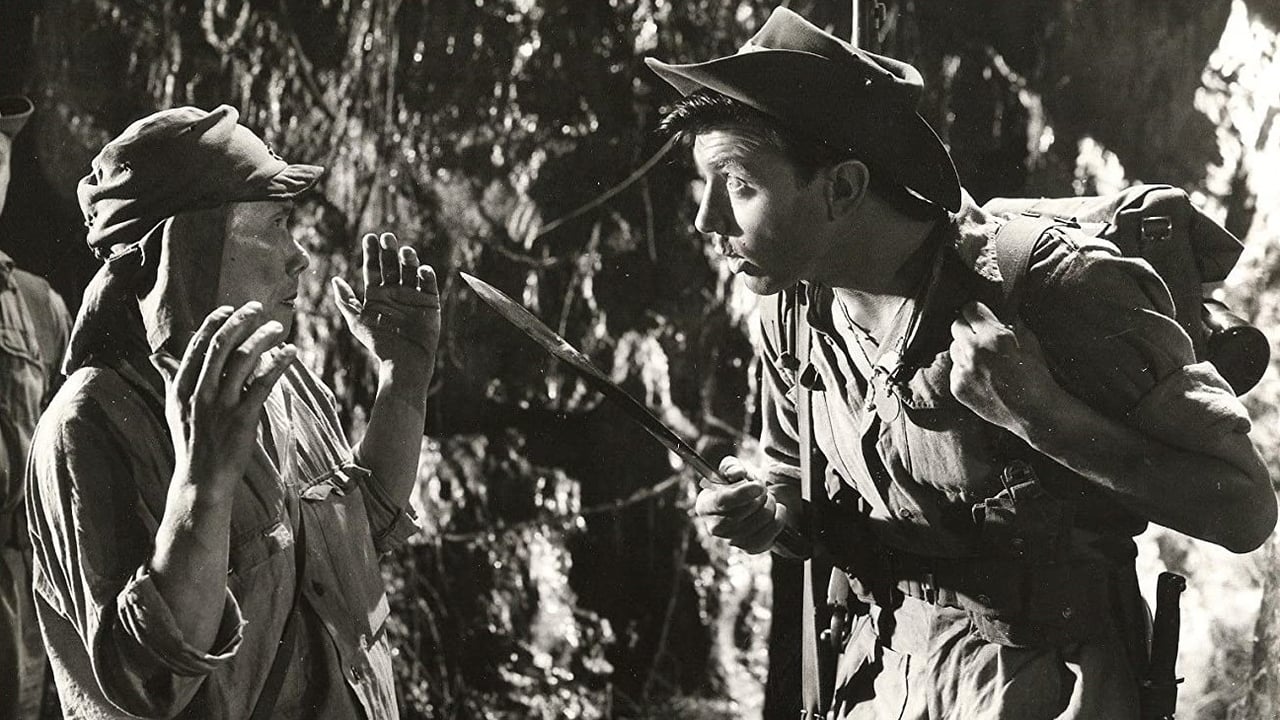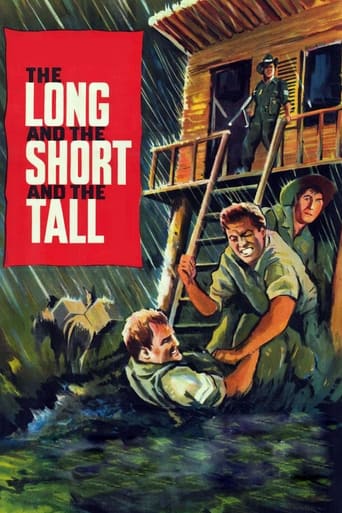

Let's be realistic.
... View MoreHighly Overrated But Still Good
... View MoreThis is one of the few movies I've ever seen where the whole audience broke into spontaneous, loud applause a third of the way in.
... View MoreIf you're interested in the topic at hand, you should just watch it and judge yourself because the reviews have gone very biased by people that didn't even watch it and just hate (or love) the creator. I liked it, it was well written, narrated, and directed and it was about a topic that interests me.
... View MoreThe Long and the short and the tall is a stage adaptation but was also a set text for English exams for 16 year olds.The film is during Burma in 1942 which is occupied by the Japanese. A group of seven soldiers expert in sonic deception take refuge in an abandoned hut in the jungle because the Japs are nearby.When a lone Japanese soldier is captured tension rise further. Sergeant Mitchem who is in command wants to take the prisoner back to HQ for interrogation. However the soldiers argue amongst each other, even if it concerns a seemingly innocent item such as a cigarette pack that the Japanese soldier has amongst his possession.Gruff Private Bamforth a barrack room lawyer who dislikes authority also becomes becomes the conscience of the platoon as the others wish to kill the captured soldier.I read the play for my English exams and also watched the film at the time. I recently rewatched it after almost three decades. Its a low budget affair directed by Leslie Norman (father of famed film critic, Barry Norman.)You can tell that it is a studio bound production, the jungle scenes look very fake and its also too brightly lit. The film also has a lot of shouting which indicates its stage origins. You would have thought that with all the shouting the Japs would have discovered the soldiers much earlier.The cast is very much a who's who of 1960s British cinema. Laurence Harvey is the standout in a film that also contains Richard Harris, David McCallum, Ronald Fraser and Richard Todd. It examines the morality and psychology of war but looks rather dated.
... View MoreThis war-drama was adapted from the stage. To be fair, this is not surprising, seeing as the film is very dialogue heavy with characters standing around delivering lines to each other. Each of the soldiers plays a specific role, which allows the writers to dramatize various issues. It's an anti-war movie at heart and one of the central themes is how prisoners of war are dealt with. The story itself has a group of British soldiers somewhere in the Burmese jungle surrounded by the Japanese enemy. They end up capturing an enemy soldier and this leads to different types of disharmony amongst the men in how they should treat this man. Over and above this though there is a lot of friction between the troops anyhow, as they are not a happy unit in the first place.I wouldn't say the film is particularly believable to be perfectly honest. It seems highly unlikely that men in the midst of the vicious conflict in the Far East would ever be this philosophical about the civil liberties of an enemy soldier. However, if you suspend your disbelief, you will be rewarded as it's a well written and acted film. For a war movie there is very little action, only at the end is there really any combat. It's essentially a drama set around a combat unit. Its well worth seeking out as it seems to be a fairly obscure film. However, it's well worth your time, especially if you are a fan of older war movies.
... View MoreIndeed, I believe this is the best movie ever made. I saw it first when I was a teenager, and its effect on me was astounding, although I didn't know the title. Twenty years later I learned the title, and it is still the most profound war movie ever made. It proves you don't need a gigantic budget and special effects to have a super story, and a script, in my opinion, is the biggest reason to see a movie. If you don't like great scripts, profound themes, believable characters, great acting and directing, you won't understand what makes this movie great. The characters and fight scenes are uncannily realistic, with human blows and emotions instead of the silly choreography look you get in the modern "dork" fight scenes that leave your eyes wandering in disdain. I won't give away much except to say the plot is much like The Ox-Bow Incident and Southern Comfort. Probably not for right wing war mongers, but it may be just what they need to see.
... View MoreHaving read the Willis Hall play with the school. I watched this film and saw that it was like watching the actual characters arguing. This shows how the different characters react to a war situation and this makes the combat scene at the end deeply moving because we get to know the characters as individuals as well as stereotypes. First class drama
... View More